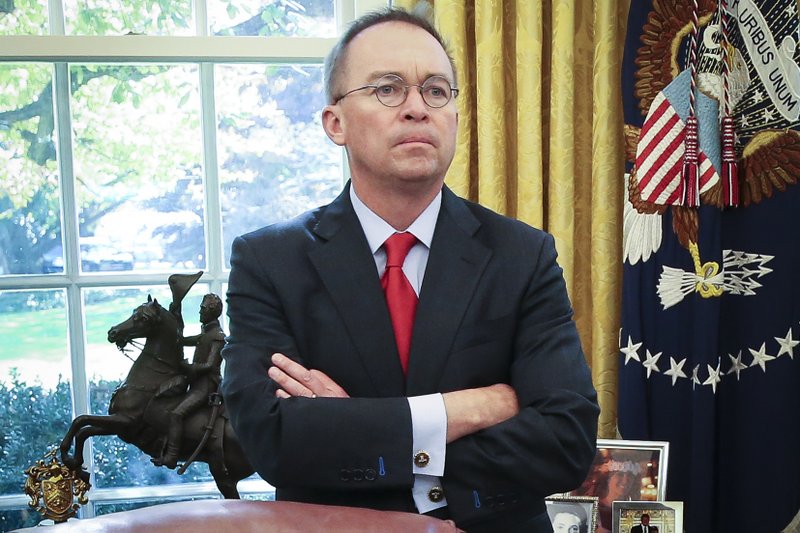A confidential White House review of President Donald Trump's decision to place a hold on military aid to Ukraine has turned up hundreds of documents that reveal extensive efforts to generate an after-the-fact justification for the decision and a debate over whether the delay was legal, according to three people familiar with the records.
The research by the White House Counsel's Office, which was triggered by a congressional impeachment inquiry announced in September, includes early August email exchanges between acting Chief of Staff Chief of Staff Mick Mulvaney and White House budget officials seeking to provide an explanation for withholding the funds after Trump had already ordered a hold in mid-July on the nearly $400 million in security assistance, according to the three people familiar with the matter who spoke on the condition of anonymity to discuss internal White House deliberations.
One person briefed on the records examination said White House lawyers are expressing concern that the review has turned up some unflattering exchanges and facts that could at a minimum embarrass the president. It's unclear if the Mulvaney discussions or other records pose any legal problems for Trump in the impeachment inquiry, but some fear they could pose political problems if revealed publicly.
People familiar with the Office of Management and Budget's handling of the holdup in aid acknowledged the internal discussions going on during August, but characterized the conversations as calm, routine and focused on the legal question of how to comply with the congressional Budget and Impoundment Act, which requires the executive branch to spend congressionally appropriated funds unless Congress agrees they can be rescinded.
"There was a legal consensus at every step of the way that the money could be withheld to conduct the policy review," said Office of Management and Budget spokeswoman Rachel Semmel. "OMB works closely with agencies on executing the budget. Routine practices and procedures were followed, not scrambling."
The hold on the military aid is at the heart of House Democrats' investigation into whether the president should be removed from office over claims he tried to pressure Ukraine into investigating his political rivals in exchange for the U.S. support that President Volodymyr Zelenskiy desperately wanted in the face of Russian military aggression.
In the early August email exchanges, Mulvaney asked acting Office of Management and Budget director Russell Vought for an update on the legal rationale for withholding the aid and how much longer it could be delayed. Trump had made the decision the previous month without an assessment of the reasoning or legal justification, according to two White House officials.
Emails show Vought and Office of Management and Budget staffers arguing that withholding aid was legal, while officials at the National Security Council and State Department protested. Office of Management and Budget lawyers said that it was legal to withhold the aid, as long as they deemed it a "temporary" hold, according to people familiar with the review.
A senior budget lawyer crafted a memo on July 25 that defended the hold for at least a short period of time, an administration official said.
Mulvaney's request for information came days after the White House Counsel's Office was put on notice that an anonymous CIA official had made a complaint to the agency's general counsel about Trump's July 25 call to Zelenskiy during which he requested Ukraine investigate former Vice President Joe Biden and his son, Hunter, as well as an unfounded theory that Ukraine interfered in the 2016 U.S. presidential election.
The White House released the funds to Ukraine on Sept. 11. The timing has drawn scrutiny because it came two days after the House announced it was launching an inquiry into the whistleblower complaint, which raised concerns about the call and whether the president was using his public office for personal political gain.
Trump has acknowledged ordering the hold on military aid and also pressing Ukraine's president to investigate Joe Biden, but said the release of the funds was not conditioned on Ukraine launching any investigations.
The office of White House Counsel Pat Cipollone oversaw the records review. The White House press office and the White House Counsel's Office did not respond to requests for comment. Mulvaney's lawyer, Robert Driscoll, declined to comment.
A Section on 11/25/2019
